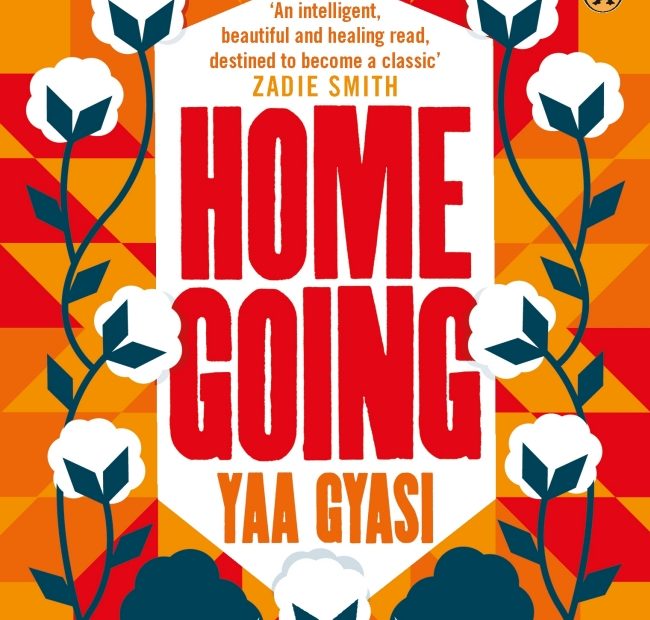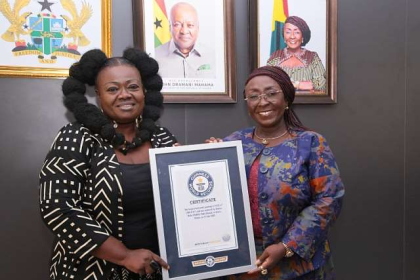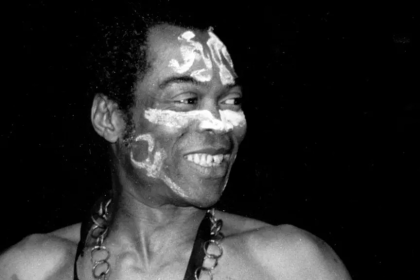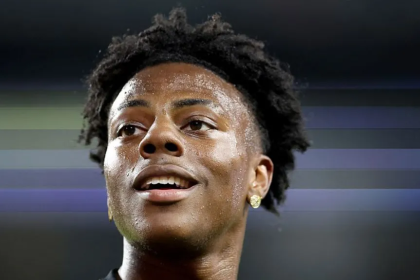Ghana is a West-African country with a long and rich history. Much of the attention it harnesses from foreign nations is due to its past as the world’s centre for the gold, ivory and slave trade in the seventeenth and eighteenth centuries.
In a world of changing influences and of a pan-African heritage movement, Ghana has been able to set its ground as a relevant cultural force to be taken into consideration. Here are eleven novels set in Ghana that do a great job of showcasing Ghanaian culture and history.
1. The Housemaid by Amma Darko
 This novel set in Ghana tells the intertwining stories of several women. It centres around Efia, a young housemaid working for Tika — a rich unmarried woman, and the plot she has schemed to steal her employer’s wealth. After Efia pretends to have unknowingly fallen pregnant at the request of her relatives from a poor rural Ghanaian village, her mother and grandmother blame Tika for not looking after Efia and demand compensation.
This novel set in Ghana tells the intertwining stories of several women. It centres around Efia, a young housemaid working for Tika — a rich unmarried woman, and the plot she has schemed to steal her employer’s wealth. After Efia pretends to have unknowingly fallen pregnant at the request of her relatives from a poor rural Ghanaian village, her mother and grandmother blame Tika for not looking after Efia and demand compensation.
As tensions escalate, these women are tested to see how far they’ll go to protect what’s theirs, or what they believe should be theirs. This novel is a great portrayal of the sometimes stark differences between urban and rural life. Amma Darko’s portrayal of a young woman’s apparent willingness to sacrifice her integrity to grasp onto city life is outstanding and unique.
2. Harmattan Rain by Ayesha Harruna Attah
 We follow the lives of three generations of women in a Ghanian family in this novel. As Ghana is gaining its independence, Lizzie-Achiaa is learning what it means to come of age as a woman whilst continuing her quest to find her missing lover. Some years later, in the aftermath of the consecutive coups, Lizzie’s daughter Akua starts out her independent life as a new, single mother. Finally, Akua’s child Sugri leaves an overprotective mother and goes to university in New York City where she must grow into her own self. Besides delving into Ghana’s political history and Ghanaian society, Ayesha Harruna Attah deftly explores what it means to be free through the main characters’ eyes.
We follow the lives of three generations of women in a Ghanian family in this novel. As Ghana is gaining its independence, Lizzie-Achiaa is learning what it means to come of age as a woman whilst continuing her quest to find her missing lover. Some years later, in the aftermath of the consecutive coups, Lizzie’s daughter Akua starts out her independent life as a new, single mother. Finally, Akua’s child Sugri leaves an overprotective mother and goes to university in New York City where she must grow into her own self. Besides delving into Ghana’s political history and Ghanaian society, Ayesha Harruna Attah deftly explores what it means to be free through the main characters’ eyes.
3. Definition of a Miracle by Farida Bedwei
 The focus of this novel is an eight-year-old girl named Zaara who has cerebral palsy. After moving away from a busy life in the UK to Ghana with her parents, Zaara seems lost in the middle of a society that doesn’t understand her condition. People attribute her cerebral palsy to a spiritual cause and so Zaara is taken to numerous healers to be cured. All the while, her multicultural family starts to crumble due to incessant fights. Definition of a Miracle is an own-voice, coming-of-age story with a charismatic main character. Faced with adapting to Ghanaian culture, trying to fit in as an outsider and dealing with family problems, Zaara nevertheless retains her charm and likability throughout the novel.
The focus of this novel is an eight-year-old girl named Zaara who has cerebral palsy. After moving away from a busy life in the UK to Ghana with her parents, Zaara seems lost in the middle of a society that doesn’t understand her condition. People attribute her cerebral palsy to a spiritual cause and so Zaara is taken to numerous healers to be cured. All the while, her multicultural family starts to crumble due to incessant fights. Definition of a Miracle is an own-voice, coming-of-age story with a charismatic main character. Faced with adapting to Ghanaian culture, trying to fit in as an outsider and dealing with family problems, Zaara nevertheless retains her charm and likability throughout the novel.
4. Tail of the Blue Bird by Nii Ayikwei Parkes
 Set in a secluded village in the interior of Ghana, British forensic scientist Kayo is on a mission to investigate the circumstances behind the appearance of human remains in the village. Although he is highly trained in forensic research, the case continuously evades being solved. Kayo has to accept the help of the villagers and adopt Ghanaian superstitions and local wisdom in order to get to the bottom of the mystery. In a skilful twist on the classic detective-novel format, Nii Ayikwei Parkes pits modernity, logic and science against tradition, myths and superstition.
Set in a secluded village in the interior of Ghana, British forensic scientist Kayo is on a mission to investigate the circumstances behind the appearance of human remains in the village. Although he is highly trained in forensic research, the case continuously evades being solved. Kayo has to accept the help of the villagers and adopt Ghanaian superstitions and local wisdom in order to get to the bottom of the mystery. In a skilful twist on the classic detective-novel format, Nii Ayikwei Parkes pits modernity, logic and science against tradition, myths and superstition.
5. Wife of the Gods by Kwei J. Quartey
 When an AIDS worker is found dead outside the small town of Ketanu, detective Darko Dawson leaves Accra to lead the investigation. Since he speaks the region’s local language he’s the perfect choice to command the team and get to the bottom of the incident.
When an AIDS worker is found dead outside the small town of Ketanu, detective Darko Dawson leaves Accra to lead the investigation. Since he speaks the region’s local language he’s the perfect choice to command the team and get to the bottom of the incident.
As the usual suspects are rounded up — people moved by anger, jealousy, vengeance and even sex-related reasons — old wounds are reopened between Detective Dawson and his estranged family. Dawson, having experienced a more modern upbringing, struggles with a certain tradition he finds: young women being given to priests as Wives of the Gods. In this novel, Quartey weaves betrayal and mystery together with local Ghanaian traditions and charts the interplay of conflicting ethics in a changing society.
6. Cloth Girl by Marilyn Heward Mills
 When Matilda Lamptey turns fourteen, she’s married off to a much older man — a Gold Coast lawyer named Robert Bannerman. This arrangement is not favourable to any of the two women affected: Robert’s first wife becomes deeply jealous and feels neglected, and Matilda is robbed of her childhood. Set against the backdrop of British colonial rule over Ghana in the 1930s, Matilda’s life goes through many changes and she must adapt to her new life as she tries to please everyone around her.
When Matilda Lamptey turns fourteen, she’s married off to a much older man — a Gold Coast lawyer named Robert Bannerman. This arrangement is not favourable to any of the two women affected: Robert’s first wife becomes deeply jealous and feels neglected, and Matilda is robbed of her childhood. Set against the backdrop of British colonial rule over Ghana in the 1930s, Matilda’s life goes through many changes and she must adapt to her new life as she tries to please everyone around her.
Cloth Girl is an outstanding portrayal of life in Ghana during the 1930s. The descriptions of the streets are incredibly vivid, and Marilyn Heward Mills thoughtfully details the interaction between British and Ghanaian citizens during the end of the colonial rule.
7. Seasons of Beento Blackbird by Akosua Busia
 Solomon Wilberforce spends a season with each woman that owns his heart: the midwife that delivered him into the world at nine years old in the Caribbean, a book agent from New York, and a young woman he’s betrothed to in Ghana. After a family problem whisks him back to New York, Solomon’s set travel schedule gets thrown out the window.
Solomon Wilberforce spends a season with each woman that owns his heart: the midwife that delivered him into the world at nine years old in the Caribbean, a book agent from New York, and a young woman he’s betrothed to in Ghana. After a family problem whisks him back to New York, Solomon’s set travel schedule gets thrown out the window.
The stable, solid metaphorical barriers separating each of these women start to get blurry, so Solomon must find other ways to shape up his life.
Akosua Busia sets up a vivid and exciting ambience for each of the novel’s locations: New York, the Caribbean, and Ghana. The contrast between each of the three regions gives the reader a unique understanding of life in these locales as well as the positive and not-so-positive characteristics of each culture.
8. Ghana Must Go by Taiye Selasi
 Following Kweku Sai’s sudden death in a suburban neighbourhood in Accra, a broken family comes together to share their individual stories and grief. Estranged relatives, with seemingly nothing but Kweku Sai in common, after years of separation meet once again in Ghana.
Following Kweku Sai’s sudden death in a suburban neighbourhood in Accra, a broken family comes together to share their individual stories and grief. Estranged relatives, with seemingly nothing but Kweku Sai in common, after years of separation meet once again in Ghana.
Their secrets, feelings and fears are the glue that bonds them back together as they mourn Kweku’s death. Ghana Must Go is a touching novel that explores the inner workings of a modern, dysfunctional family. Spanning from Ghana to Nigeria, from England to the United States, this is a testament to family love that does not easily fade away
9. The Beautyful Ones Are Not Yet Born by Ayi Kwei Armah
 Set in the 1960s during Kwame Nkrumah’s rule, a railway freight clerk attempts to stay uncorrupted in a society where accepting and offering bribes is the norm. This quest to stay honest and true to himself brings a lot of conflict into his life, both at his work and at home as everyone wants him to falsify documents in exchange for cash.
Set in the 1960s during Kwame Nkrumah’s rule, a railway freight clerk attempts to stay uncorrupted in a society where accepting and offering bribes is the norm. This quest to stay honest and true to himself brings a lot of conflict into his life, both at his work and at home as everyone wants him to falsify documents in exchange for cash.
Ayi Kwei Armah takes us on a journey through this unnamed worker’s day-to-day life as he tries to stay afloat in an increasingly morally conflicting society. This acclaimed novel is a strong critique of Ghanaian society. From Ghanaian politicians faking British accents to people breaking the law as their only way of escaping poverty, this book captures the pressures and challenges of trying to be an upstanding man in 1960s post-revolutionary Ghana.
10. No Sweetness Here and Other Stories by Ama Ata Aidoo
 This collection of short stories analyses life in postcolonial Ghana, highlighting the changing values of a country seeking to establish its identity at the turn of the century. Ama Ata Aidoo ties all the stories together with the underlying question of whether traditional values have a place in the Ghanaian society of the future. Set throughout Ghana, in cities and rural villages alike, these stories showcase the life of its citizens, their struggles and their feelings. Told from the point of view of men, women and children, Aidoo’s stories are worth the read if you’re interested in writers who are skilful enough to tell intensely human stories alongside exploring generational conflict.
This collection of short stories analyses life in postcolonial Ghana, highlighting the changing values of a country seeking to establish its identity at the turn of the century. Ama Ata Aidoo ties all the stories together with the underlying question of whether traditional values have a place in the Ghanaian society of the future. Set throughout Ghana, in cities and rural villages alike, these stories showcase the life of its citizens, their struggles and their feelings. Told from the point of view of men, women and children, Aidoo’s stories are worth the read if you’re interested in writers who are skilful enough to tell intensely human stories alongside exploring generational conflict.
11. Homegoing by Yaa Gyasi
 Yaa Gyasi’s novel follows eight generations of a family beginning with two sisters separated in the eighteenth century in Ghana. Effia and Esi are two sisters born into different villages whose fates have nothing in common: one is sold off into slavery, and the other marries a rich Englishman. As their lives continue away from their hometowns, their descendants have to face different challenges.
Yaa Gyasi’s novel follows eight generations of a family beginning with two sisters separated in the eighteenth century in Ghana. Effia and Esi are two sisters born into different villages whose fates have nothing in common: one is sold off into slavery, and the other marries a rich Englishman. As their lives continue away from their hometowns, their descendants have to face different challenges.
Effia’s descendants stay in Ghana, getting involved in tribal and colonial disputes; Esi’s have to face a world of prejudice and violence in southern cotton plantations in the United States. This is an excellent novel detailing how one decision can affect the destinies of multiple generations of a family. Writing about the characters’ lives in Ghana and in the United States, Yaa Gyasi pens an outstanding novel that throws up the contrasts and affinities between these two societies.






